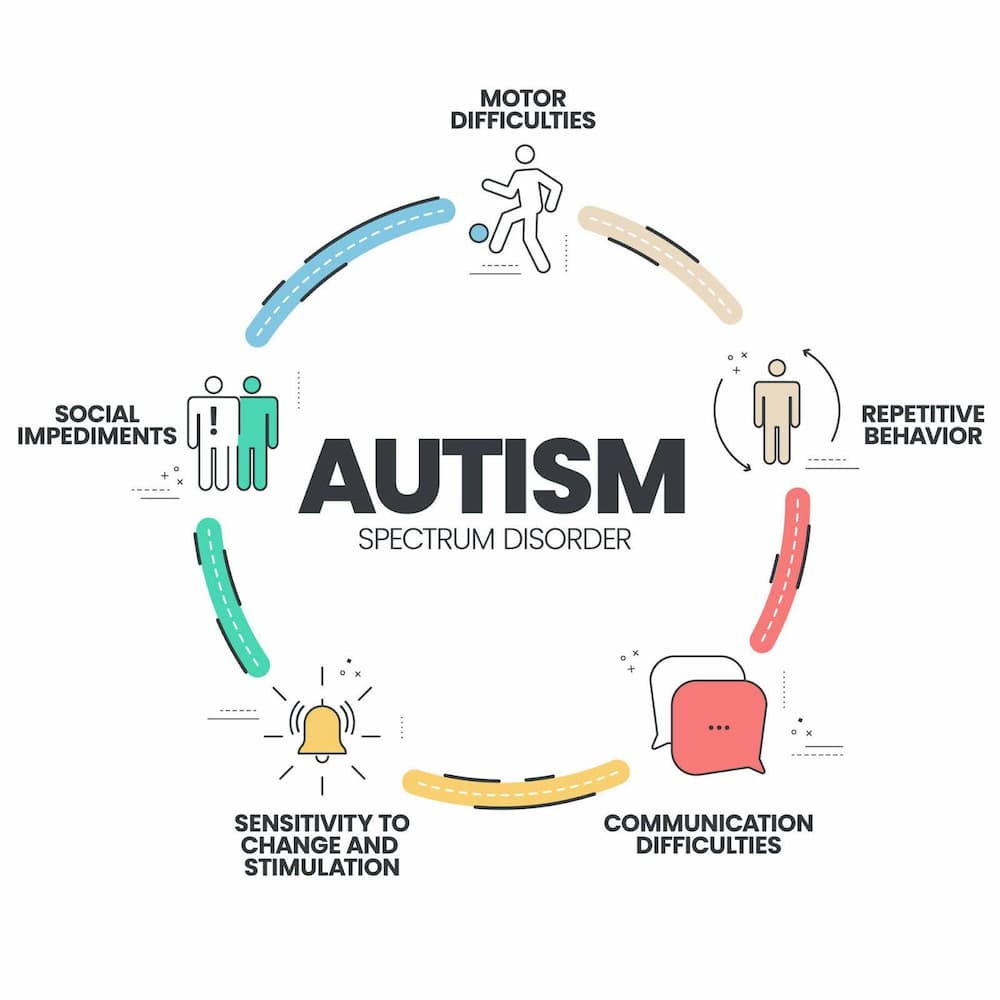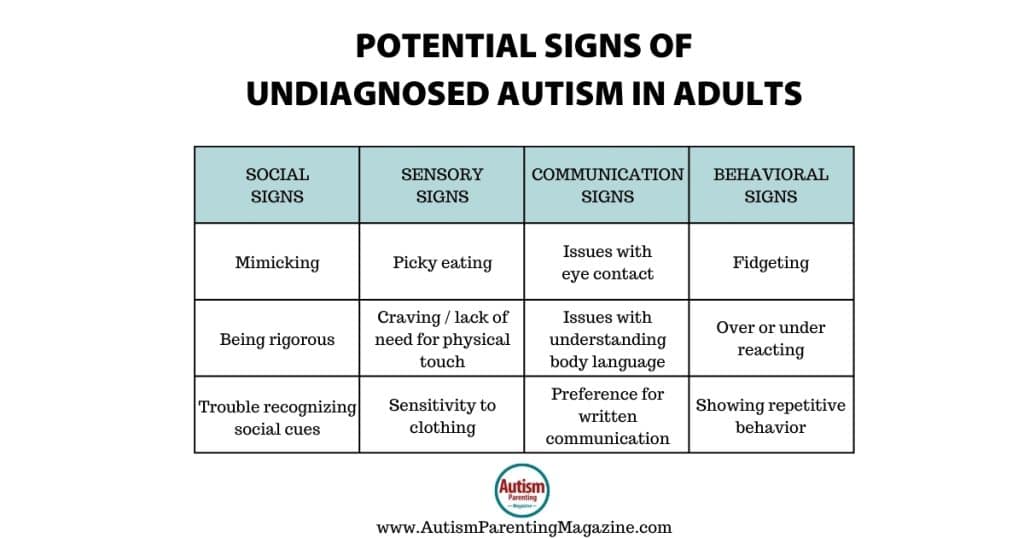Can Autism Spectrum Therapies support developing independence in teens with ASD?
Can Autism Spectrum Therapies support developing independence in teens with ASD?
Blog Article
Understanding the Impact of Behavioral Autism on Life and Social Interactions
You could not understand exactly how deeply behavioral autism impacts every day life and social interactions. Individuals on the range commonly navigate a globe filled with interaction obstacles and sensory overload. These obstacles can result in stress and isolation, impacting their relationships and total health. Recognizing these nuances is necessary for promoting encouraging atmospheres. What approaches can we carry out to produce more significant connections and inclusive spaces? The solutions may shock you.
Specifying Behavior Autism and Its Qualities
Behavior autism, often described as autism range disorder (ASD), encompasses an array of problems identified by challenges in social communication, communication, and repetitive habits. You could observe that individuals with ASD typically have a hard time to analyze social cues, which can lead to misconceptions in discussions. They might find it hard to establish eye get in touch with or participate in small talk, making social circumstances feel overwhelming.
Communication difficulties can materialize in different ways, from delayed speech development to a choice for utilizing less words. Repeated habits, such as hand-flapping or shaking, can work as coping mechanisms to manage stress or sensory overload. These features can profoundly impact life, making it important for you to understand and support those with ASD. By acknowledging these attributes, you can foster an environment that advertises acceptance and urges efficient communication, assisting individuals with autism flourish in their daily communications.
The Spectrum of Autism: Comprehending Variability in Habits
Autism spectrum disorder (ASD) isn't a one-size-fits-all medical diagnosis; it differs commonly among people. You might run into people that are highly spoken and engage easily in discussions, while others may like singular activities or connect non-verbally.
Moreover, the means people with ASD reply to sensory input can vary considerably; some could be bewildered by intense lights or loud noises, whereas others grow in promoting settings. The spectrum likewise includes distinctions in social communications; some individuals might have a hard time to analyze social cues, while others browse social setups with loved one simplicity. Recognizing this irregularity is vital, as it aids you value everyone's special experience and dressmaker support to their specific needs, promoting a more inclusive setting for every person.
Interaction Difficulties Encountered by Individuals With Autism
When you connect with individuals on the autism range, you might see their special communication difficulties. They usually encounter problems with both nonverbal and spoken signs, which can influence their social interactions. Comprehending these barriers is essential for fostering much better connections and support.

Verbal Communication Difficulties
Numerous people on the autism range experience verbal communication troubles that can substantially affect their daily communications. Your volume, tone, or speed may not straighten with social assumptions, triggering others to misunderstand your objectives. Identifying these difficulties can help you and your assistance network develop approaches to boost interaction and cultivate better connections with others in your everyday life.
Nonverbal Interaction Barriers
Verbal communication isn't the only obstacle people on the autism spectrum face; nonverbal communication barriers can be just as significant. These obstacles can lead to misunderstandings or false impressions of social hints, making communications feel frustrating or complex. By resolving nonverbal communication, you can find approaches to enhance your social experiences and boost your overall quality of life.
Social Communication Influences
Social interactions can typically feel frustrating because of the distinct interaction challenges faced by individuals with autism. You might fight with analyzing social hints, making it difficult to comprehend mockery or body movement. This can bring about misunderstandings or uncomfortable moments in conversations. Furthermore, starting and maintaining conversations may really feel tough, causing stress and anxiety in social situations. You might choose structured atmospheres, making spontaneous communications uncomfortable. It's likewise typical to experience difficulty in participating in tiny talk, which can prevent developing brand-new friendships. Acknowledging these difficulties can help you locate strategies to boost interaction, such as practicing social abilities in safe setups or making use of aesthetic help - Autism Behavioral Therapy. Comprehending your requirements permits you to browse social interactions with better self-confidence and convenience.
Social Interaction and Relationship Building in Autism
While building partnerships can be challenging for people with autism, comprehending their one-of-a-kind point of views and communication styles can cultivate purposeful connections. You could notice that many individuals on the range like straight communication and might battle with social signs or tiny talk. By being straightforward in your communications, you can aid produce an atmosphere where they really feel comfortable.
Engaging in shared passions can likewise serve as a bridge to deeper links. Whether it's a leisure activity, a favorite show, or a mutual interest, these common strings can open up doors to relationship.
Life Regimen: Navigating Difficulties and Techniques
Navigating day-to-day live regimens can be especially challenging for individuals with autism, specifically when unanticipated modifications take place. You may locate convenience in having a structured schedule, as it assists you anticipate what's next. It's regular to really feel overloaded or nervous when disruptions take place. To navigate these difficulties, see page take into consideration applying visual timetables or lists. These tools can give clearness and peace of mind.
Establishing a regimen that includes sensory breaks can also be useful. You can intend short breaks throughout your day to recharge. It's important to connect with those around you, letting them know your demands and preferences. This aids produce an understanding you can look here atmosphere.
Last but not least, technique mindfulness strategies to take care of tension and anxiety. Simple breathing workouts or grounding techniques can make a significant difference. By incorporating these approaches, you can enhance your day-to-day regimen and reduce interruptions, making life really feel much more workable.
Staminas and Capabilities of Individuals on the Autism Range
Understanding life routines is just one facet of the autism experience. Several individuals on the autism range have exceptional strengths and abilities that establish them apart. You might locate that your focus to detail is remarkable, enabling you to master tasks that need accuracy and focus. Your capability to assume outside package can result in cutting-edge solutions in different situations.
Additionally, your memory abilities commonly shine, specifically in locations of passion. Aba Therapist. This flair for keeping info can make you an important resource in areas like technology, scientific research, or art. You may additionally show strong visual thinking, enabling you to picture complex ideas and address issues artistically
Additionally, your distinct point of view on the globe can promote compassion and understanding in others, enhancing social communications. Welcoming these strengths not only boosts your confidence yet likewise aids others appreciate the varied talents you give the table.
Creating Comprehensive Environments for People With Autism
Creating comprehensive atmospheres for individuals with autism starts with developing sensory-friendly spaces that accommodate their unique demands. You can likewise cultivate opportunities for social interaction, aiding to build relationships and links. By making these modifications, you'll add to a much more inviting atmosphere for everyone.
Creating Sensory-Friendly Spaces
While making sensory-friendly areas, it's essential to show on the one-of-a-kind demands of individuals with autism. Integrate peaceful areas where individuals can reenergize and pull back when bewildered. Include aesthetic routines or clear signage to assist individuals browse the room with confidence.
Promoting Social Communication Opportunities
Designing sensory-friendly rooms not just addresses private convenience yet also sets the phase for meaningful social interactions among individuals with autism. Urge peer mentoring, matching individuals with autism with helpful peers who can lead them with social circumstances. By executing these approaches, you can boost social chances, aiding people with autism construct friendships and enhance their social skills in a secure, inviting atmosphere.

Regularly Asked Questions
How Can Buddies Support Somebody With Behavioral Autism?
You can sustain a friend with behavior autism by holding your horses, paying attention actively, and valuing find out here their limits. Engage in tasks they appreciate, communicate freely, and produce a comfortable atmosphere where they really feel valued and recognized.
What Resources Are Available for Moms And Dads of Children With Autism?
You can discover various resources for parents of kids with autism, including support system, academic sites, and regional community services. Getting in touch with various other parents can also supply beneficial insights and shared experiences to assist browse challenges.
Can Behavioral Autism Adjustment In Time?

Yes, behavior autism can change with time. You could observe shifts in interaction, social skills, and actions as your kid expands. Early intervention and support usually play vital functions in these developmental modifications.
Exactly How Do Sensory Sensitivities Impact Every Day Life?
Sensory level of sensitivities can make everyday experiences frustrating. You might deal with loud noises or intense lights, leading to tension or evasion. Locating settings that accommodate your requirements can considerably enhance your comfort and general day-to-day live.
What Are Typical Misconceptions About Behavioral Autism?
You may think behavior autism only influences interaction abilities, yet it's even more facility. Many assume individuals lack compassion or intelligence, which isn't real. Recognizing these misconceptions helps foster approval and assistance for those on the range.
Behavioral autism, commonly referred to as autism range disorder (ASD), incorporates a range of problems defined by difficulties in social interaction, interaction, and repetitive actions.Social communications can often really feel overwhelming due to the one-of-a-kind interaction difficulties faced by people with autism.Creating sensory-friendly spaces not just addresses specific convenience however likewise sets the phase for purposeful social communications amongst people with autism. Encourage peer mentoring, coupling people with autism with encouraging peers that can guide them with social circumstances. By implementing these techniques, you can boost social chances, assisting individuals with autism construct friendships and enhance their social skills in a secure, welcoming setting.
Report this page